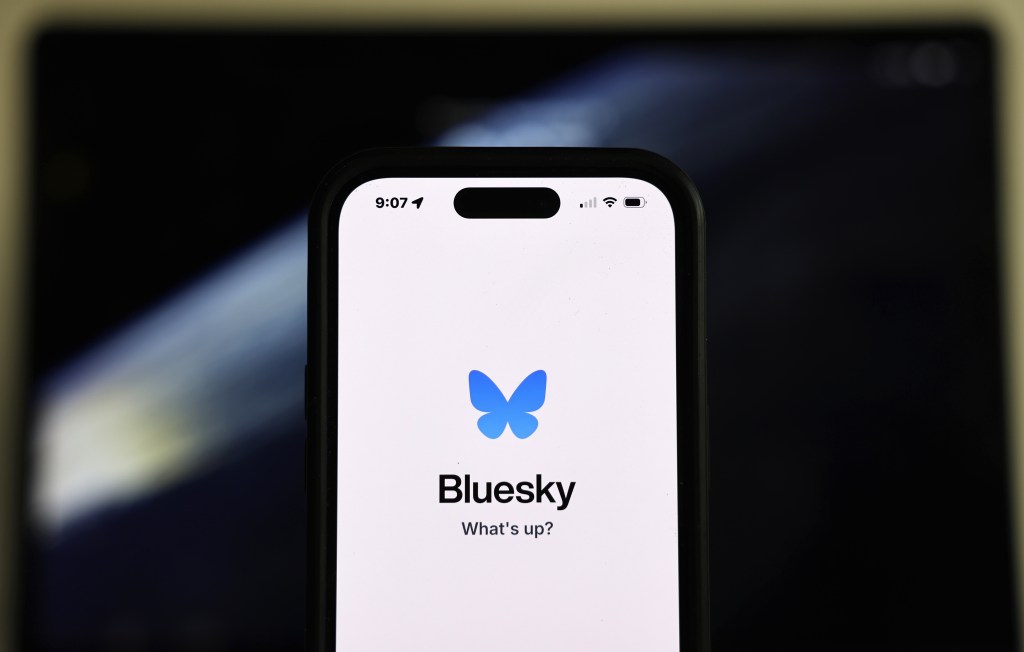Is this finally the end for X? Users flee Elon Musk’s chaotic platform for Bluesky – but what is it?
Users of Elon Musk‘s X/Twitter are looking for a new social media platform on which to connect and share their thoughts – and Bluesky might be the answer.
Bluesky has been the talk of the internet for some time now, and last week it became the top free app in the Apple App Store in the UK, as users looked for an alternative to Musk’s platform where LGBTQ+ hate appears free to continue unabated.
Having launched in 2022, Bluesky has been steadily gaining numbers, especially in the wake of the recent US presidential election and with Musk co-leading the newly formed Department of Government Efficiency. This month, the platform’s audience hit 19 million, with 700,000 new members in just one week.
So, is the grass really greener – or maybe bluer – elsewhere? Here is everything you need to know about the up and coming social media platform.
Is Bluesky free?
Yes.
Bluesky started as an internal project by former Twitter chief executive Jack Dorsey in 2019. In 2021, it became an independent company with Jay Graber taking the reins.
Previously, new users were only able to migrate to the site if they received an invitation from an existing user. That policy has been scrapped and anyone can join. Visit bsky.app and click the sign-up button to begin.
What is the difference between X and Bluesky?
At first look, X/ and Bluesky seem similar, both are scrollable social media platforms but when you look closer the new alternative solves a lot of problems that users have been having with Musk’s adopted child recently.
People using Bluesky can post, comment, repost and like their favourite things using the home page, notifications and search functions.
Bluesky prides itself on being a network that prioritises user control, a stark contrast to X’s algorithm-driven feeds that had become increasingly populated by bots. Being decentralised is an essential difference because users can host their data on their own servers rather than those owned by the company.
However, most people are unlikely to use this feature and will simply join with a “.bsky.social” at the end of their username.

Why is everyone going to Bluesky?
It’s no coincidence that following Trump’s re-election, the number of new users on Bluesky shot up.
Elon Musk backed Trump’s presidential campaign both vocally and financially and has now been nominated for a position in the incoming administration. With political division on the platform being felt by all, some are leaving X as a protest.
Other X users have grown fed up with the platform’s toxic algorithmic feeds and the South-African-born billionaire’s failed promises to end the bot problem.
Also, since Musk took over, X seems to have been increasingly prioritising right-wing/MAGA attitudes.
The platform has also become increasingly hostile for LGBTQ+ users. Musk – whose own trans daughter has cut him out of her life – rolled back anti-hate protection policies on the social media platform after he took it over, such as those against misgendering and deadnaming.
The policy which prohibited “targeted harassment, including repeated slurs, tropes” or content intended to dehumanise protected categories, had been in effect since 2018 – prior to Musk’s acquisition of the platform – but was dropped last year.
The policy was “quietly” brought back in March but not before transphobic abuse on the site had rocketed. Musk has seemingly championed this with his plan to move the X and SpaceX headquarters out of California, after the state passed a law that explicitly prohibits school districts outing trans students to their parents.
Other moves by Musk, who wants to remove the “groomer” slur from the list of discriminatory terms, while anti-trans hashtags regularly trend on the site, are seen as proof that the platform’s hateful conduct policy has been a failure.
Notable LGBTQ+ figures, including Elton John, abandoned the platform in a mass exodus. Meanwhile, The Trevor Project and Transgender charity Mermaidsjoined a number of LGBTQ+ charities quitting X over the rise of LGBTQ+ hate on the platform.
GLAAD, the world’s largest LGBTQ+ media advocacy organisation, released its annual Social Media Safety Index and Platform Scorecard in June.
It ranks social media platforms based on their efforts to ensure the safety of LGBTQ+ users. X was rock bottom.
The not-for-profit organisation described X as: “The most dangerous platform for LGBTQ+ people.”